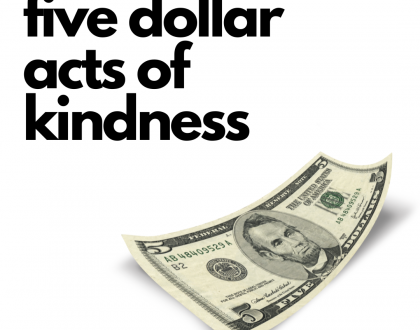June Thoughts

June Thoughts
During the middle part of May, I was out of the office because of Covid isolation, and didn’t preach last week. I was working on some thoughts regarding Uvalde and Buffalo that I hadn’t quite finished, and then we heard about the events in Tulsa yesterday. My thoughts are too long for our newsletter column, and not quite ready for a sermon. They’re still a little clumsy and lengthy, but I decided I wanted to think out loud today. Here goes:
I grew up in Winston-Salem, NC in the late 1980s. Back then, you couldn’t go anywhere in town without seeing or hearing the phrase: “Pride in Tobacco.” It was everywhere! On bumper stickers. On billboards. Even in our schools. As a matter of fact, third-grade field trips were taken to the Whitaker Plant to see the big machine that rolled Camel cigarettes. A modern marvel.
Tobacco was our universe. It was the backbone of our economy. It paid our bills; it built our healthcare system; it moved a college 100 miles west. When Nabisco bought out RJR, it even created several hundred millionaires in a single day.
I have never smoked. But even as a college student, knowing full-well the health hazards of tobacco, I remember vigorously defending tobacco interests in an economics class. “Just think of what tobacco bans will do to our state?!? How could we possibly replace the revenues that fund our infrastructure?” To stand up for tobacco was to stand up for my own.
25 years later (yikes that can’t be right!), I have a more refined understanding of economics, not to mention defending my own. Blame it on that divinity school founded by tobacco money! An economy rooted in tobacco, or slavery, or natural pollution, or any entity whose product harms, devalues, and even kills both its consumers and producers isn’t one worth sustaining. We can try to spin it anyway we want, but at the end of the day, our most valuable commodity is abundant life. And life cannot be, indeed will never be abundant for every neighbor when profits are prioritized over people. And we cannot “defend our own” if our defense is the oppression of others.
Tobacco built a fortune for us, and a proud history. But our fortune and pride were built on the backs of slaves, and later sharecroppers, who harvested the crop without profit, without recognition, and most tragically without freedom and dignity. Tobacco money was invested into banks that financed the sale and purchase of slaves, and later solidified a culture of segregation and marginalization. Tobacco wreaked havoc on our health for two centuries, and continues to prey on our most vulnerable communities. Tobacco has helped to pollute our Ozone. Pursuit of tobacco profits left us ill-equipped to both dream about and pursue other avenues of entrepreneurship beyond its realm. Nothing about this is fortuitous, or proud, or righteous. And none of it is abundant. And none of it defends our ultimate wellbeing.
Here’s the crazy thing though. If I said or wrote the above paragraph to an audience in 1990, myself included, I would have most likely offended three-quarters of the room. In 2022, public opinions about smoking have shifted. Smoking is not protected, nor is it glamorized. And few would argue its health risks. And for the vast majority of you, nothing in the above paragraph is significantly controversial. (Queue the comments!)
To be sure, smoking remains a global health crisis. Our World in Data reports that globally, smoking contributed to more than 8 million premature deaths in 2019. The CDC reports that more than 480,000 deaths per year in the United States can be attributed to tobacco use. Still, there has been improvement. The CDC also reports that the death rate for smoking in the United States (deaths per 100,000 residents) has decreased by 42% between 1990 and 2019. In addition, the percentage of adult smokers in the United States has decreased from 20.9% in 2005 to 12.5% in 2020.
The numbers are still too high, but a shift in public opinion, change in policy, and reduced access to minors have helped saved countless lives. It’s fair to say that such changes have saved a Winston-Salem full of lives each year of the last decade.
I want to travel back in time. I want to talk to the me of 1997. I want to ask him, “Would you trade 8 million lives a year in return for a slogan, and a flawed history, and the false perception of defending your friends?”
And that brings me to the meat of my point.
What an awful month of May! Three times in the same week, and now once more in June, we’ve had to read about mass shootings. And the most tragic thing is that these headlines are becoming more normal every day. (Tulsa is nowhere near the top of CNN’s newsfeed).
I want to admit freely that I do not own a gun. I simply have no desire to possess something with that amount of power. I also have no desire to willingly, even under assault, end another’s life. It’s just not how I am wired. Finally, I am not convinced that in my personal spaces, a firearm is something that is either safe or useful for me.
I do, however, believe that people can own and store firearms responsibly. I remain skeptical of their usefulness, but I am pragmatic enough to understand that others desire handguns or sporting rifles for various needs. I don’t want to take away guns. I simply want to prevent non-trained, non-eligible, non-stable people from obtaining assault weapons and killing innocent people. And I think there should be reasonable barriers to access.
For whatever reason, a large subset of our population clings to the notion of a safer, more prosperous, freer world when firearms, especially assault weapons, are less regulated. I can’t help but think that the affection for such a narrative is rooted in similar communications strategies that garnered our past affection/support for big tobacco.
In supporting tobacco, we chose cleverness over compassion. We chose death over life. Three decades later, we’re making the same mistake on guns.
Yes, yes, yes, yes, a hundred times yes, we have the right to free speech, and we have the right to bear arms. We even have the right to be a jerk! Really, there’s nothing unlawful about that. But just because we have the right to say anything, or to arm ourselves with tools of destruction, or to be unkind to others, DOES NOT MEAN we should do those things. We must remember that we have a higher calling – we are called to love God and love neighbor.
Innocent school children, grocery shoppers, and worshippers being gunned down are not reflections of the love we are called to. Our language must reflect this. Our prayers must reflect this. And most importantly, our actions must reflect this.
I never would have believed I would have been more likely to see a handgun in my high school than a cigarette. But here we are.
May God give us the courage to defend life the old-fashioned way: with love for neighbor.
Recommended Posts

Five Dollar Kindness
March 24, 2023

What Happened to Your Sign?
February 23, 2023

2022 Advent Calendars
December 02, 2022

